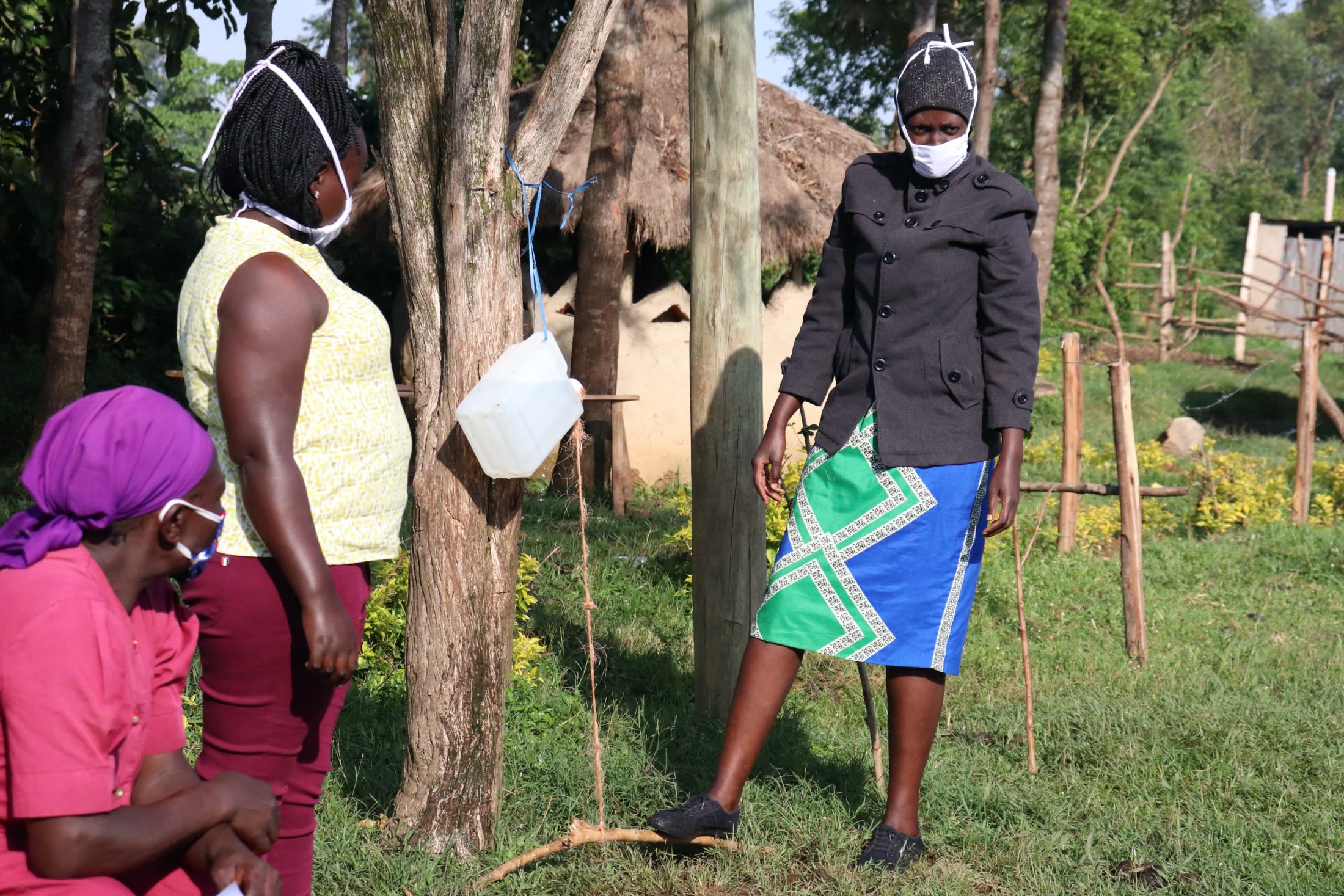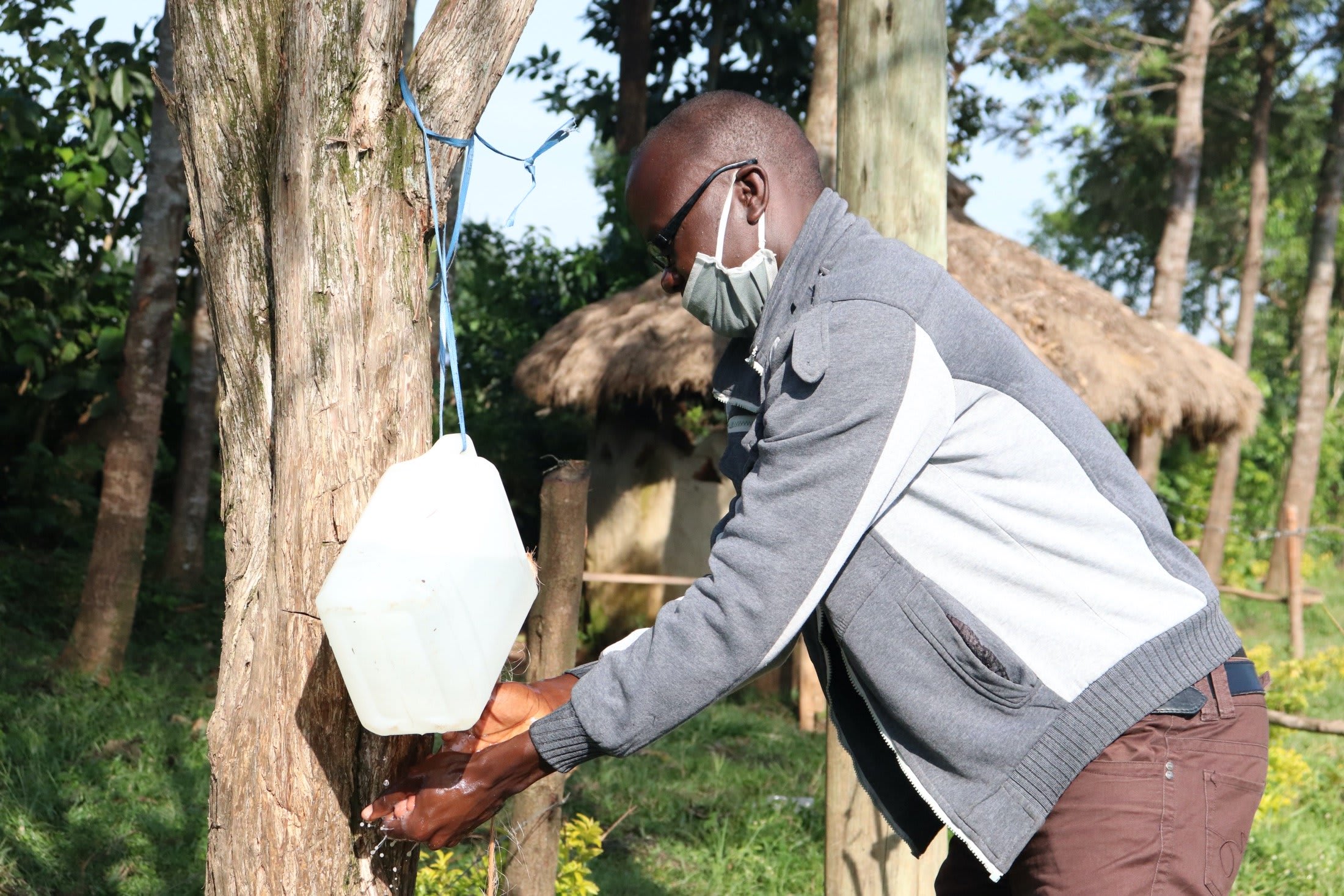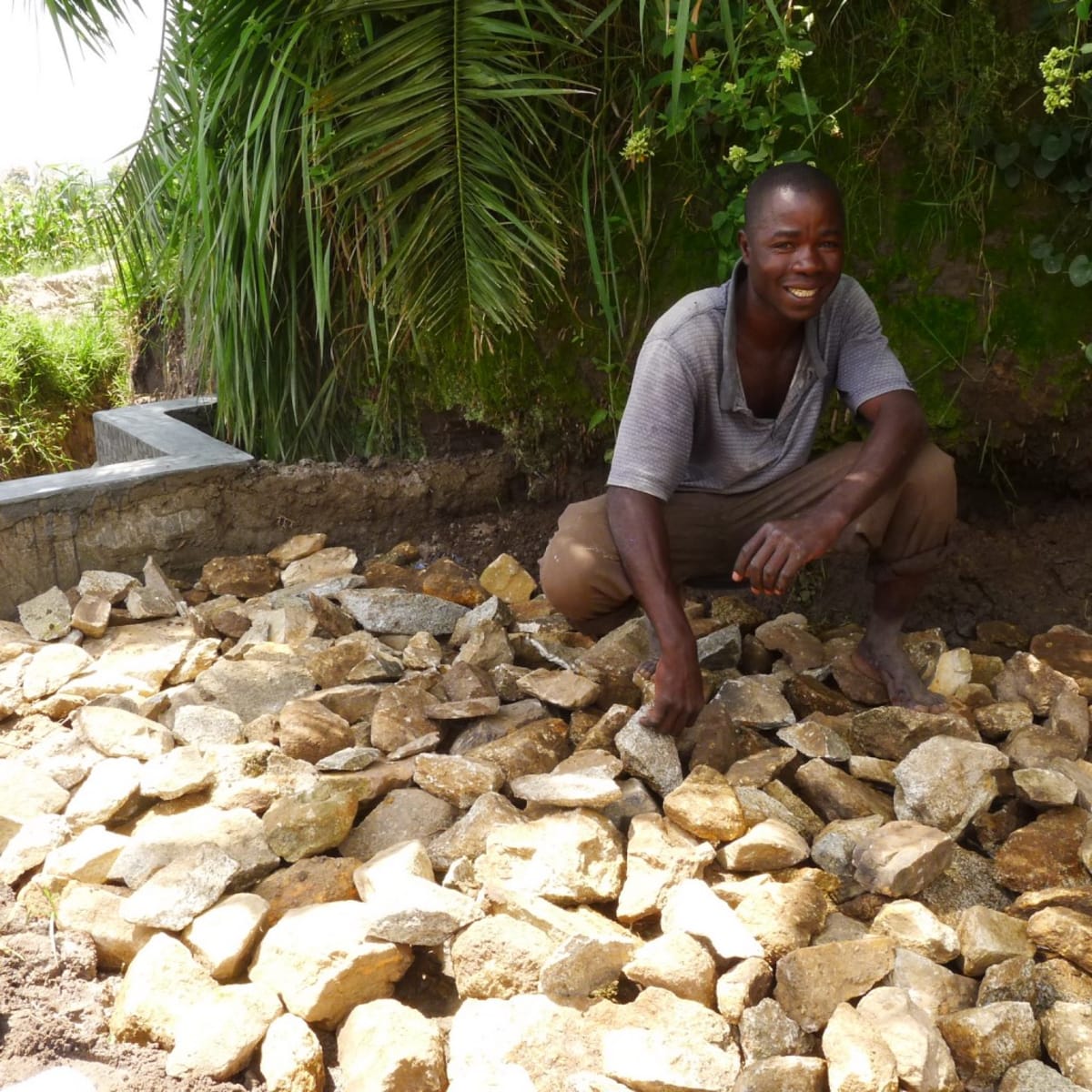This project is being implemented by our partner Western Water And Sanitation Forum, and includes the construction of a spring protection system and sanitation platforms for latrines.
Background
This unprotected spring is located in Timbito village, Chebwayo sub location, Chekulo location,North Kabras division in Malava constituency. The spring is serving a total number of 480 people from 60 households of which 225 are male, 240 female, and 5 disabled.
The spring also serves Timbito primary school that has no access to safe water with a population of 602 pupils and 13 teachers. This water is used for cooking, drinking, cleaning and watering animals.
Since this spring is unprotected, it’s open to contamination from surface run off during rains, people stepping in while drawing the water and watering animals. Resulting to outbreaks of water borne diseases and most common cases are typhoid, amoeba and stomach aches.
Women and children wastes a lot of economical time waiting for the water to clear before they can fetch again and in the event of waiting there results gossips amongst the women that later leads to conflicts.
Due to lack of knowledge on proper handling of the water, it’s normally contaminated further, especially children who drink direct from the source with dirty hands while the same water is falling back in the source. This results in greater rates of diarrhea amongst children for drinking water using dirty hands and drinking water that has not been treated.
The sanitation situation amongst the community members is wanting. Most of the community members do not have latrines. The few that have are in poor state without privacy as shown above. This results in too many people using bushes in the surrounding areas. During rain seasons the wastes in bushes are washed into the unprotected water source contaminating it further. Many of these latrines are poorly situared on an up-slope from the water spring thus contaminating it.This has resulted to recurrent out breaks of water borne diseases.
Alice, one of the community members, stated that typhoid, stomach aches and diarrhea are the norm in her household. This has cost her up to Ksh 12,800 (roughly 146$ USD) treating the diseases in her family. This, she stated, had depleted the family resources and brought down her only source of income which is vegetable selling. Lack of knowledge on water handling and good hygiene practices like hand washing at critical times has also contributed to spread of water borne diseases.
The community members took their plight to the Participatory Rural appraisal resource Chair person for Malava constituency who in turn approached WEWASAFO for assistance. There is need to intervene in these community by protecting the water source that is serving many people and school children from Timbito primarily to have increased health in the community.
The mobilization process of the community
The community sensitization, mobilization and organization activities targeted both the local leaders in the communities. This begun by sensitization of the Deputy county Commissioner who was also acting county commissioner in Kakamega county and assistant county commissioner of Malava. They were briefed on the project intervention in their areas.
This was followed up by sensitization of the local administration and village. This was aimed at creating awareness on the projects intervention in the area and also selection of the key resource persons to be trained as PRAs.
The Participatory Rural Appraisal Process
The PRA process was conducted with an objective of equipping participants with relevant skills of appraising the projects in the community and training on good leadership, management, monitoring and evaluation.
Representation was drawn from opinion leaders, community members, village administrators and other development partners working in the same area.
Mapping of the community resources was done to assist the community members identify the locally available resources within their community and contribute the same towards the project this ensures ownership and sustainability of the project. The community calendar was also done in order to identify key events in the community like market days, holidays, public meeting days and markets days. This assisted in planning for trainings and other project activities
The implementation of the Water and Sanitation Hygiene (WaSH) trainings
The Water and Sanitation management committee training was conducted to the committee members for Timbito spring. They were equipped with relevant skills on management and maintenance of their water spring, good governance, funds collection and record keeping.
A total number of 18 people were trained out of which 8 were males and 10 were females.
After training the participants were encouraged to establish structures of management and maintenance of the water points by fencing the water points, making cut off drainages and planting indigenous trees to conserve the water.
The committee was also urged to register with the Ministry of Social services so they can access devolved funds which will enable them to engage in income generating activities and improve their livelihoods.
The Community Health workers were also selected around the springs and equipped with skills on health and hygiene promotion in villages in order to reduce incidences of water borne diseases.
A total number of 20 people attended the training of which 6 were males and 14 were females.
After trainings they were charged with responsibility of making home visits, public meeting and educate the community on practicing good hygiene practices, family planning and safe water handling in order to prevent water borne diseases.
The implementation of the hardware for that project (tanks, SP, latrines etc)
The protected spring is serving a total number of 480 people from 60 households of which 225 are male, 240 female, and 5 disabled.
The spring also serves Timbito primary school that has no access to safe water with a population of 602 pupils and 13 teachers. This water is used for cooking, drinking, cleaning and watering of animals.
In order to prevent contamination of the water sources by faeces resulting from open defecation, five vulnerable members of the community that lack toilets received sanitation platforms.
From Timbito spring, the following members of the community received the sanitation platforms:
- Christine Mateba serving total number of 16 people of which 7 are males and 9 are females
- Rosemary Mbalasi serving total number of 12 people of which 8 are males and 4 are females
- Marko Ikobia serving total number of 17 people of which 8 are males and 9 are females
- Boniface Chilakwa serving total number of 8 people of which 3 are males and 5 are females
- Meshack Murula serving total number of 12 people of which 7 are males and 5 are females


 Rehabilitation Project
Rehabilitation Project






















